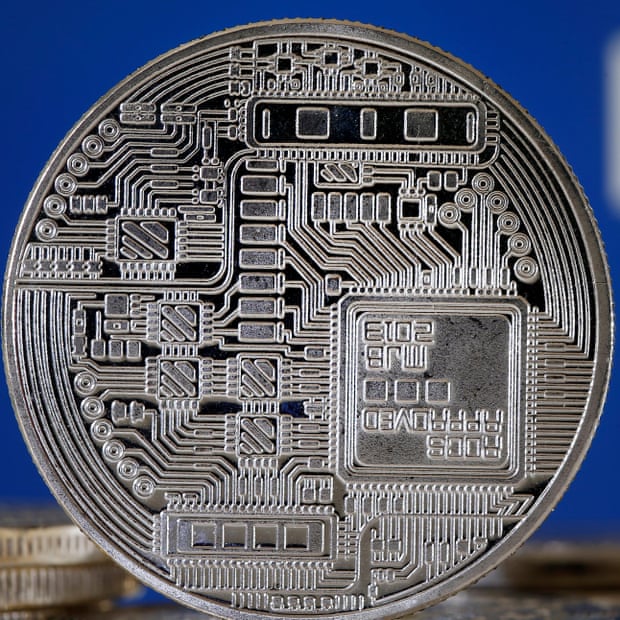PayPal has become the first company to drop out of Facebook’s Libra cryptocurrency, as the embattled project continues to face queries from regulators around the world.
Libra is technically an association backed by 28 – now 27 – multinational companies and nonprofits, although Facebook takes the lead, and a Facebook subsidiary, Calibra, is intended to be the main way consumers will interact with the project. Each of the companies involved had to pledge $10m (£8m) into a common pot to join.
PayPal did not give a reason for leaving the project. It said in a statement: “PayPal has made the decision to forgo further participation in the Libra association at this time and to continue to focus on advancing our existing mission and business priorities as we strive to democratise access to financial services for underserved populations.
Quick GuideWhat is Libra, Facebook's proposed cryptocurrency?
Show

What is Libra?
Facebook says Libra is a 'global currency and financial infrastructure' - a digital asset built by Facebook and powered by a new Facebook-created version of blockchain, the encrypted technology used by bitcoin and other cryptocurrencies. The name Libra comes from the basic Roman measurement of weight. The abbreviation lb for pound is derived from Libra, and the £ symbol originally comes from an ornate L in Libra.
Why is Facebook launching a cryptocurrency?
Facebook claims it wants to reach the 1.7 billion people around the world who do not have access to a bank account.
Who is in charge of Libra?
Facebook is likely to run into regulatory hurdles and antitrust concerns. The currency will be serviced by a collective of companies called the 'Libra Association'. It functions as what is known as a 'stablecoin', pegged to existing assets like the dollar or euro, in the aim of making it less subject to the volatility that many cryptocurrencies experience.
The Libra Association is described by Facebook as an independent, not-for-profit organisation based in Switzerland. Within the Libra Association will be a governing body called the Libra Association Council, comprised of a representative of each member of the association, which will vote on policy and operating decisions.
Facebook claims that although it created the Libra Association and the Libra Blockchain, once the currency is launched in 2020 the company will withdraw from a leadership role and all members of the association will have equal votes in governance of Libra. The companies who contributed a minimum of $10m(£8m) to be listed as founding members of the Libra Association include tech companies such as PayPal, Ebay, Spotify, Uber and Lyft, as well as financial and venture capital firms such as Andreessen Horowitz, Thrive Capital, Visa and Mastercard.
However in October 2019 several of the companies that had been backing the initiative announced that they were pulling out, including Visa, Mastercard, PayPal and Stripe.
How and when can I use it?
With regulators asking questions and backing companies dropping out, it is unclear now if Libra is still viable. Facebook's original plans were that users could download Calibra, a digital wallet, that would allow them to send the currency to anyone with a smartphone. It is no longer clear which countries the coin will launch in first, if at all, though Facebook had said 'almost anybody' in the world with a smartphone would be able to download the app.
Kari Paul in San Francisco
“We remain supportive of Libra’s aspirations and look forward to continued dialogue on ways to work together in the future. Facebook has been a longstanding and valued strategic partner to PayPal and we will continue to partner with and support Facebook in various capacities.”
PayPal is not the only company thought to be having second thoughts about involvement. A Wall Street Journal report last week named Mastercard and Visa as companies reconsidering their position before a meeting on 14 October with representatives from the companies involved.
Since that report, Visa’s chief executive pointed out that any involvement was only provisional. Al Kelly told investors: “No one has yet officially joined. We’re in discussions and our ultimate decision to join will be determined by a number of factors, including obviously the ability of the association to satisfy all the requisite regulatory requirements.”
Libra has been under increasing scrutiny from regulators, particularly in Washington and Brussels, where the project is seen as an attempt to bypass rules on topics ranging from money laundering to tax evasion.
The French government has said it would block the development of Libra in the EU, while US regulators have suggested the financial underpinnings of the currency, which will involve pegging the value of one Libra against a basket of currencies held in reserve, could bring the project under the auspices of securities regulators.








